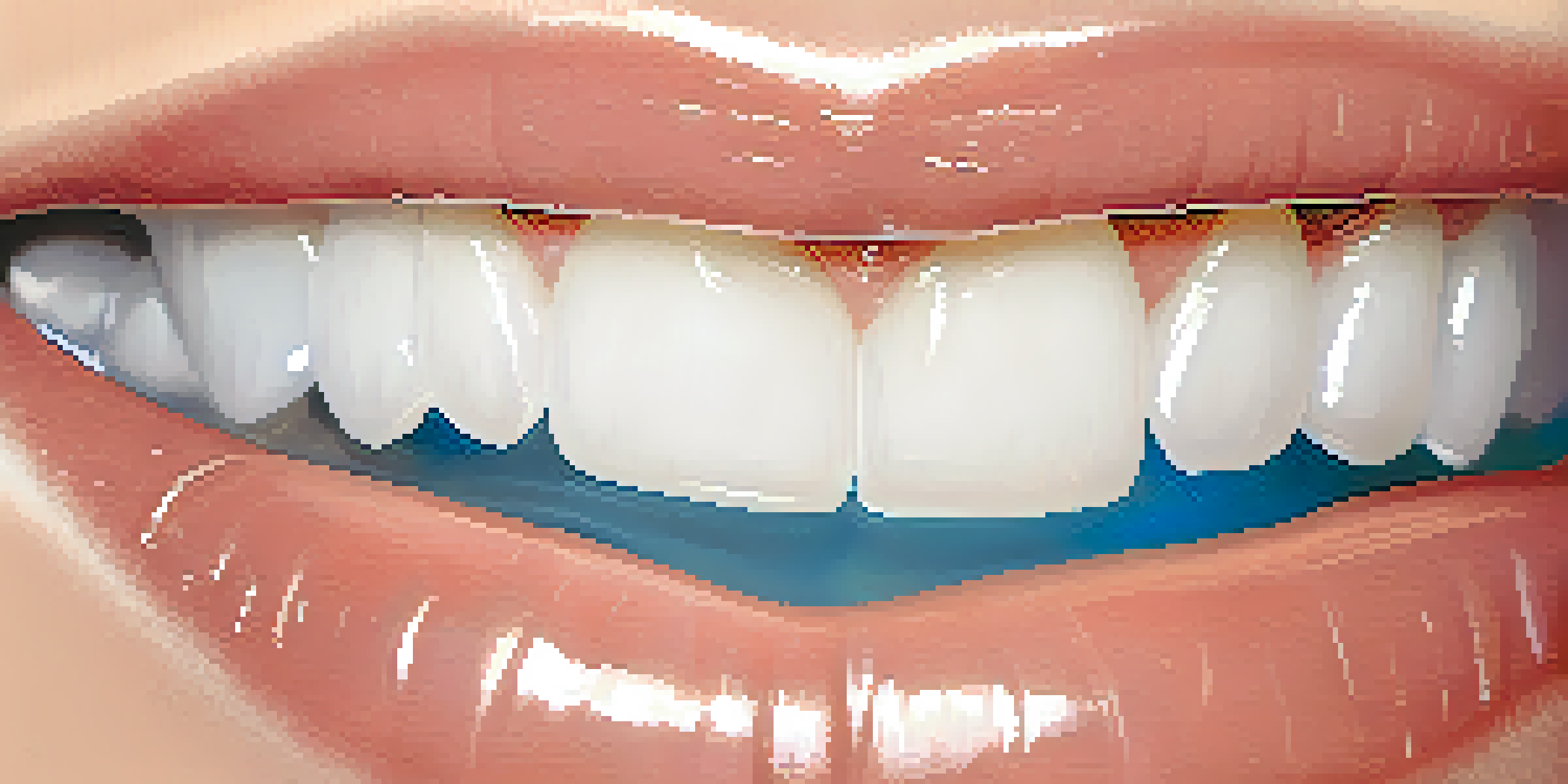The Impact of Environmental Factors on Oral Health

How Pollution Affects Oral Health and Hygiene
Air pollution is more than just a nuisance; it can have serious consequences for our oral health. Research indicates that pollutants can lead to inflamed gums and exacerbate periodontal disease. Additionally, airborne toxins can enter our body through the mouth, potentially leading to various health issues.
The mouth is a mirror of health and disease, reflecting the state of the body.
For example, studies have shown that individuals living in urban areas with high levels of pollution often report higher instances of oral health problems. The connection between pollution and oral bacteria is alarming, as certain pollutants can disrupt the oral microbiome, leading to imbalances that promote decay and gum disease.
To combat these effects, maintaining good oral hygiene practices becomes crucial. Brushing, flossing, and regular dental check-ups can help mitigate some of the negative impacts of pollution on our teeth and gums.
The Role of Diet and Nutrition in Oral Health
Diet plays a pivotal role in maintaining oral health, as the foods we consume directly impact our teeth and gums. A diet high in sugars and acids can lead to cavities and erosion of enamel. On the other hand, a balanced diet rich in vitamins and minerals supports strong teeth and healthy gums.

For instance, foods high in calcium and vitamin D, such as dairy products, can help strengthen tooth enamel. Additionally, crunchy fruits and vegetables like apples and carrots can naturally clean teeth while providing essential nutrients, showing how our food choices can impact our oral hygiene.
Pollution Impacts Oral Health
Air pollution can lead to gum inflammation and disrupt the oral microbiome, increasing the risk of dental issues.
Incorporating a variety of nutrients into our diet not only benefits our overall health but also enhances our oral health. Making conscious dietary choices can act as a simple yet effective way to promote a healthy smile.
Water Quality and Its Effects on Dental Health
The quality of the water we drink can significantly affect our oral health. Fluoridated water has been shown to reduce the risk of cavities, making it an essential part of dental health for many communities. However, areas with poor water quality may lead to increased dental issues, as harmful substances can harm both teeth and gums.
Good oral health is not only important for a healthy life but is a reflection of overall health.
For example, lead contamination in drinking water can lead to serious health problems, including dental decay. When tap water is not safe to drink, individuals may resort to sugary beverages, further increasing their risk for cavities and other dental diseases.
Ensuring access to clean, fluoridated water is vital for maintaining oral health. Communities need to prioritize water quality to foster healthier populations and reduce dental issues.
Climate and Its Influence on Oral Hygiene Practices
Climate can directly influence oral hygiene practices, as extreme weather conditions can affect our routines. For instance, hot and humid climates may lead to increased sweat production, which can alter saliva's natural balance and potentially result in dry mouth. This condition can heighten the risk of cavities and gum disease.
Conversely, colder climates may lead to decreased hydration, which can also contribute to dry mouth. In both scenarios, the lack of saliva can hinder the mouth's ability to wash away food particles and bacteria, further emphasizing the need for effective oral care habits.
Diet Influences Dental Well-Being
A balanced diet rich in vitamins and minerals is essential for maintaining strong teeth and healthy gums.
Adapting oral hygiene practices to suit climate conditions can help maintain healthy teeth and gums. Staying hydrated and adjusting dental care routines according to the weather can significantly impact oral health.
Socioeconomic Factors and Their Impact on Oral Health
Socioeconomic status plays a critical role in determining access to dental care and education about oral hygiene. Individuals from lower socioeconomic backgrounds may face barriers such as lack of insurance or financial constraints that prevent them from receiving regular dental check-ups. This can lead to untreated dental issues that worsen over time.
Moreover, education about proper oral hygiene practices often varies across different socioeconomic groups. Those with limited access to information may not be aware of effective dental care strategies, leading to increased rates of cavities and gum disease in these communities.
Addressing these disparities is essential for promoting equitable oral health. Community programs that provide education and resources can help bridge the gap and improve dental health outcomes for underserved populations.
The Influence of Stress and Mental Health on Oral Care
Stress and mental health can have surprising effects on oral health, often leading to neglect of dental care. When individuals experience high levels of stress, they may prioritize other aspects of their life, causing their oral hygiene practices to fall by the wayside. This neglect can lead to cavities, gum disease, and other dental issues.
Additionally, certain stress-related behaviors, such as teeth grinding or jaw clenching, can cause physical harm to teeth over time. This unconscious habit can lead to tooth wear, fractures, and even temporomandibular joint (TMJ) disorders.
Access to Care Affects Outcomes
Socioeconomic factors significantly influence access to dental care, leading to disparities in oral health across communities.
Recognizing the connection between mental well-being and oral health is crucial. Implementing stress management techniques and prioritizing self-care can help individuals maintain both their mental and dental health.
The Importance of Regular Dental Checks in Different Environments
Regular dental check-ups are vital for maintaining oral health, but accessibility can vary based on environmental factors. In rural areas, people may have limited access to dental care, leading to increased risks of untreated dental issues. In contrast, urban areas may offer more dental services but can be overwhelming or expensive for some individuals.
The environment in which a person lives influences their ability to seek preventive care. For example, a lack of dental clinics in a community can result in residents postponing necessary treatments, ultimately affecting their oral health negatively.

Advocating for accessible dental care in all communities is essential for improving overall oral health. By ensuring that everyone has the opportunity for regular check-ups, we can help prevent dental diseases and promote healthier smiles.
Environmental Awareness and Its Role in Promoting Oral Health
Raising awareness about environmental factors and their impact on oral health is crucial for fostering healthier communities. By understanding how pollution, diet, and access to clean water influence dental hygiene, individuals can make informed choices. This knowledge empowers people to take control of their oral health and advocate for better environmental policies.
For instance, community workshops on the importance of fluoride in drinking water or the effects of diet on dental health can help educate individuals about maintaining their oral hygiene. When communities come together to share information, we create a supportive environment that encourages healthy habits.
Ultimately, promoting environmental awareness is not just about oral health; it's about creating a holistic approach to well-being. By connecting the dots between our environment and our health, we can work towards a healthier future for everyone.